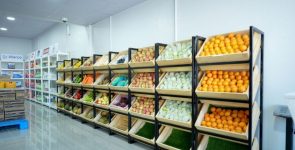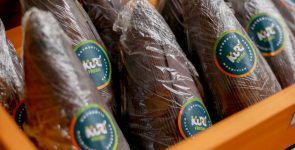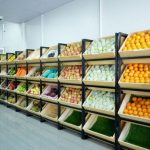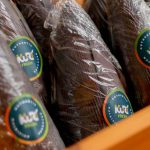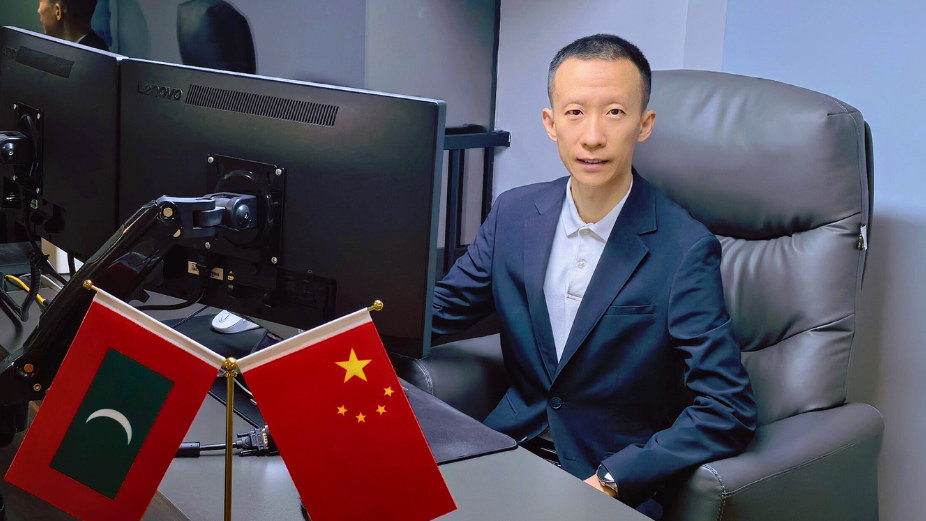
Kevin Che is the Managing Director of KLN International Co., Limited, a company established in 2009 that excels in international trade and logistics, serving a diverse array of sectors including furniture, electronics, and textiles. With a robust focus on quality control and client service, KLN offers comprehensive solutions ranging from product sourcing to shipping.
Under Kevin’s leadership, KLN has nurtured extensive ties with both government and private sectors in the Maldives, successfully adapting to the evolving demands of global trade and maintaining competitive edge in the industry.
Corporate Maldives had the fortunate opportunity to discuss KLN International with him and glean some insight into their operations in the Maldives.
1. How has the Chinese supply chain evolved over the past 15 years, especially in your experience with KLN International?
Established in 2009, KLN International Co., Limited has been dedicating ourselves to international trade and logistics, dealing with almost all kinds of products such as furniture, ceramics, hardware, building materials, electronics, textiles, garments, etc.
The Chinese supply chain has evolved from simple and low-end production at the beginning into cutting-edge technology and innovation in the world today.
2. What challenges have you faced in sourcing and supplying products from China to the Maldives?
A significant factor in this landscape is pricing. Items with international brands often come with higher price tags, making them less competitive compared to locally produced Chinese goods. On the other hand, most Chinese local products are priced more competitively, offering better value for money to Maldivian importers and consumers.
Another thing to consider is that different people have different tastes. The extensive variety of products available in China presents its own set of challenges. With a vast array of choices for every item, customers can sometimes find the selection process overwhelming. The sheer number of options can complicate decision-making, making it difficult for customers to settle on a specific product.
Additionally, the logistics side of the business is influenced by fluctuating freight rates. Both sea and air freight costs are not static and can vary significantly over time. As a result, KLN International’s quotations for shipping costs are only valid for a limited period, necessitating timely decisions from customers to take advantage of the quoted prices.
3. Can you share some insights on how KLN International ensures quality control in its product sourcing?
When it comes to selecting suppliers, we undertake a rigorous comparison process involving multiple potential vendors. This comprehensive evaluation considers several critical factors such as the reliability, reputation, quality of products, pricing, and the overall service provided by these companies. We then choose the most reliable supplier based on this thorough assessment to ensure that our customers receive the best possible products and services.
Once the goods are ready for shipment, we take additional steps to ensure customer satisfaction and product quality. We ask our suppliers to provide actual photos or video clips of the ordered products. This allows our customers to re-confirm the details and condition of their orders before the delivery process begins. By doing so, we aim to provide transparency and build trust, ensuring that the products meet the customers’ expectations and specifications before they are dispatched.
4. In what ways have global economic shifts impacted your operations and sourcing strategies?
Global economic shifts have significantly influenced our operations and sourcing strategies, driving us to adapt and thrive in an interconnected and competitive international market.
a. Bigger Market: The global economic landscape has expanded, making it increasingly easier to conduct business with customers from diverse countries. This expansion has opened new opportunities and markets for our operations, allowing us to reach a broader customer base and grow our business internationally.
b. More Resources: The availability of resources has also broadened significantly. We now have the capability to source products not just domestically but from all over the globe. This global sourcing strategy provides us with a wider selection of products and materials, enabling us to offer a more varied and competitive product range to our customers.
c. More Competitive: The market has become highly competitive due to the influx of new competitors from around the world. This heightened competition pushes us to continuously innovate and improve our offerings, services, and efficiency to maintain and enhance our market position.
d. Cultural Diversity: As we engage with customers from different cultural backgrounds, we must adapt our approach to meet their varied needs and preferences. Understanding and respecting cultural differences is essential for building strong relationships and providing tailored solutions that satisfy our diverse clientele.
e. Different Countries, Different Laws: Operating on a global scale necessitates a deep understanding and compliance with the laws and regulations of each country we do business with. It is crucial to respect and adhere to these legal frameworks to ensure smooth and lawful operations. This includes understanding trade policies, import/export regulations, and other legal requirements specific to each market.
5. What emerging trends in product sourcing and logistics do you foresee becoming significant in the next five years?
In my opinion, there will be several key trends in product sourcing and logistics that will become increasingly significant over the next five years:
a. Health-Related Products: As global awareness of health and wellness continues to rise, products related to health will dominate the market. This includes a wide range of items such as medical supplies, health supplements, fitness equipment, and wellness products. The demand for these items is expected to grow, driven by consumers’ desire to maintain healthy lifestyles and the ongoing advancements in medical technology.
b. New Energy: The push towards sustainable and renewable energy sources will greatly influence product sourcing. Products related to new energy, such as solar panels, wind turbines, and energy storage solutions, will see increased demand. This trend is fueled by the global shift towards reducing reliance on fossil fuels and minimizing environmental impact.
c. Low-Carbon Products: As part of the broader environmental movement, low-carbon products will become a key focus. These include items that are manufactured with minimal carbon footprints, sustainable materials, and eco-friendly processes. Consumers and businesses alike are becoming more conscious of their environmental impact, leading to greater demand for sustainable alternatives.
6. How do you see the role of technology influencing the future of the supply chain and logistics industry in China?
I think technology like AI and big data will keep playing a key role as it will work not only in the supply chain and logistics industry but in every corner of our life in the near future.
7. What strategies is KLN International implementing to stay competitive in the evolving market?
a. Optimize the use of resources.
b. Enhance quality control
c. Streamline operations
d. Improve services
e. Keep up with the times
5. What emerging trends in product sourcing and logistics do you foresee becoming significant in the next five years?
In my opinion, there will be several key trends in product sourcing and logistics that will become increasingly significant over the next five years:
a. Health-Related Products: As global awareness of health and wellness continues to rise, products related to health will dominate the market. This includes a wide range of items such as medical supplies, health supplements, fitness equipment, and wellness products. The demand for these items is expected to grow, driven by consumers’ desire to maintain healthy lifestyles and the ongoing advancements in medical technology.
b. New Energy: The push towards sustainable and renewable energy sources will greatly influence product sourcing. Products related to new energy, such as solar panels, wind turbines, and energy storage solutions, will see increased demand. This trend is fueled by the global shift towards reducing reliance on fossil fuels and minimizing environmental impact.
c. Low-Carbon Products: As part of the broader environmental movement, low-carbon products will become a key focus. These include items that are manufactured with minimal carbon footprints, sustainable materials, and eco-friendly processes. Consumers and businesses alike are becoming more conscious of their environmental impact, leading to greater demand for sustainable alternatives.
6. How do you see the role of technology influencing the future of the supply chain and logistics industry in China?
I think technology, particularly advancements in AI and big data, will continue to play a pivotal role in shaping the future of the supply chain and logistics industry in China. These range from AI integration, big data, Automation and Robotics, to real-time tracking and monitoring systems.
7. What strategies is KLN International implementing to stay competitive in the evolving market?
To stay competitive in the evolving market, KLN International is implementing several key strategies:
a. Optimize the Use of Resources: We are continuously seeking ways to optimize our resource utilization. This includes efficient allocation of manpower, capital, and technology to maximize productivity and minimize waste.
b. Enhance Quality Control: Ensuring the highest quality of products is a top priority. We are strengthening our quality control processes to ensure that every product meets stringent standards before it reaches our customers. This commitment to quality helps build trust and long-term relationships with our clients.
c. Streamline Operations: We are focusing on streamlining our operations to improve efficiency and reduce costs. This involves adopting lean practices, automating routine tasks, and improving workflow processes to ensure smoother and faster operations.
d. Improve Services: Customer satisfaction is paramount. We are enhancing our services by providing more personalized and responsive customer support, ensuring timely delivery, and addressing any issues promptly. By improving our service offerings, we aim to exceed customer expectations and foster loyalty.
e. Keep Up with the Times: Staying current with industry trends and technological advancements is essential. We are committed to continuous learning and adaptation, embracing new technologies, and staying ahead of market trends to maintain our competitive edge.
By implementing these strategies, KLN International aims to remain a leader in the international trade and logistics industry, providing exceptional value to our customers and adapting to the ever-changing market landscape.





